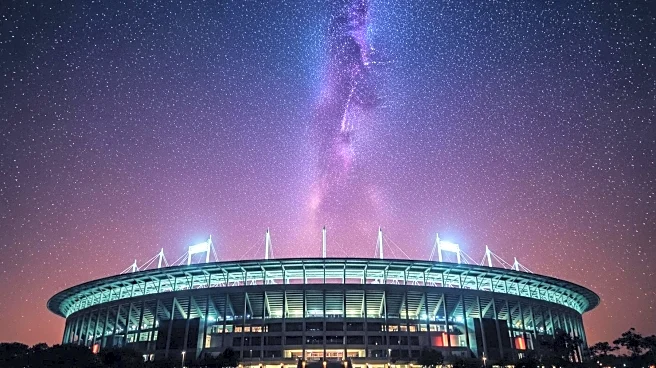What's Happening?
The Chicago Stars achieved a season-high attendance during their match against the Orlando Pride at Northwestern's Martin Stadium, marking a significant moment for the team as they plan to make the stadium their home for the 2026 season. The Stars won the game 5-2, with notable performances from players such as Sam Stabb and Jameese Joseph. The move to Martin Stadium is seen as a strategic decision to improve accessibility for fans, as the current venue, SeatGeek Stadium, has posed transportation challenges. The new location offers a scenic environment and a supportive community, enhancing the overall experience for both players and fans.
Why It's Important?
The decision to relocate to Martin Stadium is crucial for the Chicago Stars as it addresses longstanding issues with fan accessibility and engagement. The new venue is expected to attract a larger audience, potentially boosting the team's visibility and support within the community. This move could also contribute to the growth of women's soccer by providing a more suitable and appealing environment for spectators. The increased attendance at Martin Stadium highlights the potential for a stronger fan base, which is essential for the team's success and the promotion of women's sports.
What's Next?
The Chicago Stars will continue to explore the possibility of making Martin Stadium their permanent home, while assessing the impact of the move on fan engagement and attendance. The team will focus on building a robust fan base and enhancing the match-day experience to ensure sustained support. Stakeholders, including the Stars' management and Northwestern University, will likely engage in discussions to finalize the arrangements for the 2026 season. The success of this transition could influence other teams in the National Women's Soccer League to consider similar moves to improve accessibility and fan experience.
Beyond the Headlines
The relocation to Martin Stadium not only addresses logistical challenges but also reflects broader trends in sports management, where teams are increasingly prioritizing fan experience and community engagement. This move could set a precedent for other sports teams facing similar issues, highlighting the importance of strategic venue selection in enhancing team performance and fan loyalty. Additionally, the increased visibility of women's soccer at a prominent university venue may contribute to shifting cultural perceptions and encouraging greater support for women's sports.









